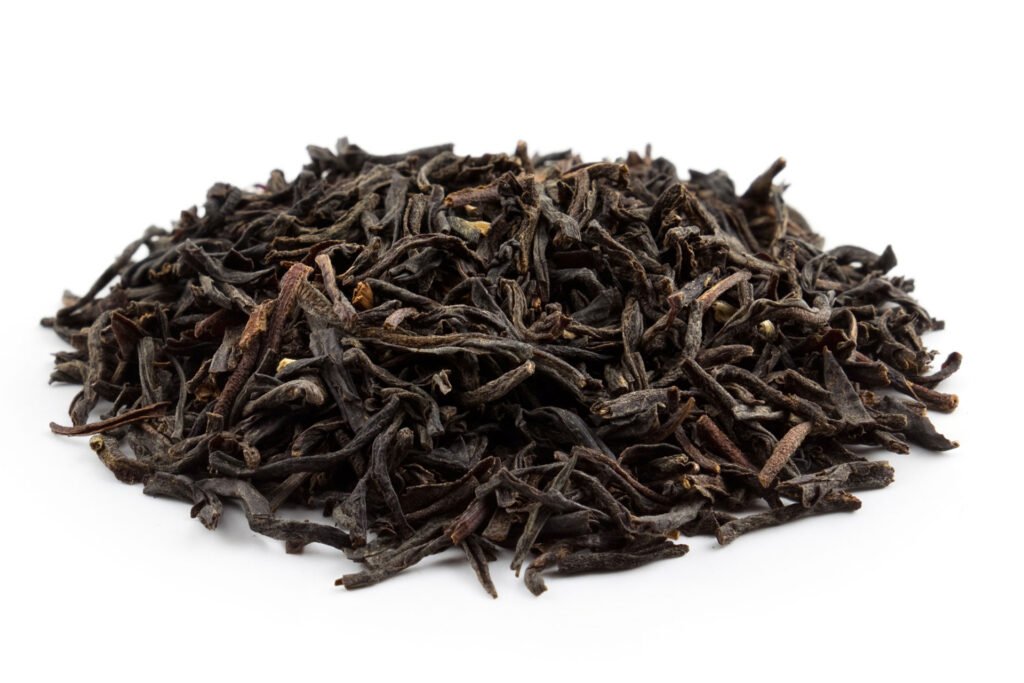Assam tea is known for its bold, malty flavour and bright colour. It is not just a beverage but an essential part of Assamese identity, Indian culture, and a significant player in the global tea market.
The region receives 250–300 cm of annual rainfall, maintains high humidity, and lies at a low elevation along the Brahmaputra River basin. These conditions are ideal for cultivating the indigenous Camellia sinensis var. Assamica. Assam contributes over 50% of India’s total tea production, producing over 650 million kilograms annually, placing India as the second-largest tea producer globally, just after China.

Today, Assam tea is exported to over 80 countries, with key importers including the United States, United Kingdom, Russia, and Iran. The industry not only supports India’s export economy but also contributes nearly 15%–20% of Assam’s GDP, directly and indirectly employing over 1.2 million people.
What Makes The Tea Gardens of Assam Unique?
The Tea gardens of Assam are typically very large in size and they provide shelter for entire communities of workers and their families. The Monabarie Tea Estate, located in Biswanath district, is the largest tea garden in Assam and Asia. Spanning nearly 1,158 hectares, Monabarie not only produces high-quality tea but also reflects the scale of operations required to meet global demand.
Another famous name is the Dikom Tea Estate, Dikom is known for producing premium-grade orthodox teas that are very popular among domestic as well as international markets and 1 kilogram of this premium tea might cost upto Rs. 75000 , depending on the changing prices. Each tea garden brings a distinct profile to the tea because of the slight variations in altitude, soil, and processing techniques.
The Impact of Tea Cultivation In the Culture and Society of Assam
Tea is a way of life in Assam and drinking tea is a daily ritual in Assamese culture. Introduced during British colonial rule in the 1830s, Assam’s tea industry employs over six lakh workers, a majority of whom are women. Most of the tea gardens provide housing, education, and healthcare to workers and their families, turning them into long-standing institutions of both agriculture and community life.

Tea festivals and tea tourism have started gaining popularity, adding a layer of tourism to the traditional economy. Initiatives like the Assam Tea Festival held in Jorhat celebrate this beverage through music, food, and plantation walks. The Tea Tribes of Assam, form a significant part of the state’s population and their traditions, music (Jhumur dance), festivals (Karam Puja), and food have enriched Assam’s socio-cultural landscape.
Which Companies are Leading in the Tea Industry of Assam?
Several influential tea companies are operating in the the region but a few companies that dominate the market include:
- Assam Company India Ltd. – Assam Company India Ltd. is the oldest tea company in the world, it was founded in 1839 by the British for their colonial interests, but today it leads as a pioneer in commercial tea production.
- Tata Consumer Products (owners of Tata Tea)- Tata Consumer Products has deep roots in Assam and holds a significant share in the export of CTC (Crush-Tear-Curl) teas.
- Goodricke Group- It manages estates like Dejoo and Harmutty and it is famous for its single-origin teas.
- McLeod Russel India Ltd.- With over 30 estates in Assam, McLeod Russel is the world’s largest tea producing company in the world, it is also considered the largest bulk tea producer in the world.
These companies maintain high standards through quality control, ethical sourcing, and investments in worker welfare. These estates follow fair trade practices and are certified, highlighting their commitment to sustainability. Their influence has helped Assam maintain its reputation as a global tea hub.
Jorhat: The Tea Capital of Assam
Jorhat is often referred to as the “tea capital of Assam”, this town is home to the Tocklai Tea Research Institute, the oldest and largest of its kind in the world. Established in 1911, the institute has played an important role in modernizing tea cultivation and processing techniques. Jorhat also boasts numerous heritage tea estates and serves as a hub for auctions, packaging, and exports. Its significance lies not just in volume but in vision.

What Is the Future of Assam Tea in the Global Market?
Despite challenges like fluctuating global prices, labour disputes, and climate change, the future of the tea industry of Assam appears promising. Industry growth is projected at a 4%–5% CAGR over the next decade, with diversification into green, white, and specialty teas. Tourism is emerging as a complementary revenue stream, with many Tea gardens offering heritage stays, plantation tours, and guided tasting sessions.
With the government and private sector initiatives promoting Geographical Indication (GI) tagging, digital auctions, export subsidies, organic cultivation, improved branding, and direct-to-consumer models. Assam tea is here, to not only stay but to lead the global tea market.
From the biggest tea garden in Assam to the tea capital of Assam in Jorhat, the state’s influence in the global tea trade is huge. With its perfect blend of climate, culture, and commitment, Assam has not only earned its status as a tea-producing giant but also remains a symbol of India’s agricultural and cultural richness. Assam continues to offer the world not just a beverage, but a fresh sip of history, culture and tradition in every cup.
